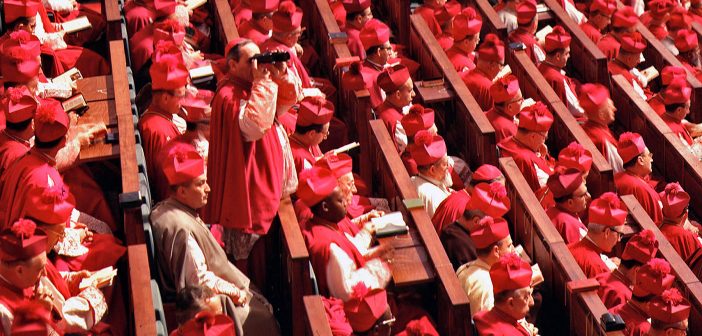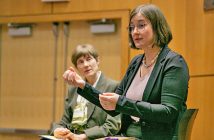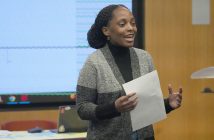Fifty years ago priests ruled the roost of American Catholicism. Convents were full. Catholic schools were at their peak attendance with nearly five million students enrolled. Masses were in Latin. And the Catholic system of hierarchy remained unquestioned.
If, back then, there was to be a conference on Catholic theology, the clergy would’ve been the ones to speak. The nuns may not have been invited. And lay people, a majority educated by nuns, would have likely read about it later in the Catholic press.
Then came Vatican II.
Next week, when the Center on Religion and Culture (CRC) holds a conference on the 50 years that have passed since that seminal event, the attendees, panelists, and speakers will look quite different.
“Our Inheritance: Vatican II at 50: The Post-Conciliar Generation Looks at the Next Half Century,” will be held in the Corrigan Conference Center on March 9 and 10.
Among the speakers and panelists presenting, said CRC Director James McCartin, there is just one priest on the program. Rather, the participants reflect American Catholic scholarship’s new normal: mostly lay people, plenty of women, and a heavy Latin-American influence.
“You can’t put together a conference on American Catholicism today without including Latino leaders,” said McCartin.
And women. Patricia Bellucci, the center’s program manager, said “Today’s scholars are learning their theology from women and men, it’s a completely different paradigm then what went before.”
The conference will also be relatively young, with panelists hailing from the post-baby boom and Generation X eras. McCartin said that the goal is to hear from the generation that doesn’t remember the council.
“It’s now time for those people to take responsibility and carry forward what was done at Vatican II,” he said.
McCartin said that the generation that mentored today’s younger scholars might have had more issues with the church hierarchy. But, for the present generation of church scholars, those issues have dissipated—as many of the institutions embodying authority have lost the influence they had in the mid-1960s.
“The fact that younger generations of scholars are not necessarily looking to ordained leaders as the authorities in the way of their predecessors makes for a very different conversation,” he said.
The event is free and open to the public. RSVP at [email protected]. Follow on Twitter at #VaticanII.



